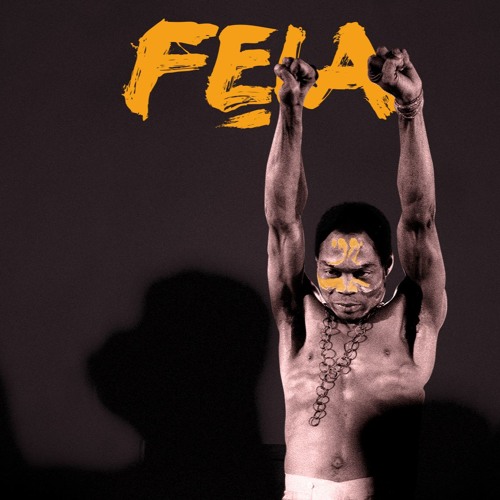
In the heart of Lagos, under the blazing African sun, a revolutionary was born—not of armies or political movements, but through the power of music. His name was Fela Anikulapo Kuti, and he would go on to reshape not only Nigerian music but also the very fabric of African resistance.
Born in 1938 in the city of Abeokuta, Nigeria, Fela’s story was one of defiance, invention, and unwavering commitment to social change. But this journey didn’t begin on a stage; it began in the quiet halls of education. Fela was first introduced to the world of Western classical music when he attended London’s Trinity College of Music in the late 1950s. But it wasn’t long before the beating drums of his homeland called him back.
The London days of Bach and Beethoven would soon be forgotten as Fela found his true calling: blending his African roots with the bold rhythms of jazz and funk. What emerged was nothing short of groundbreaking: Afrobeat.
Afrobeat wasn’t just a genre; it was a movement, a soundscape where highlife, jazz, and funk collided with African traditional rhythms. Fela, with his soaring saxophone and intense rhythmic precision, led his band Africa ’70 to fame, creating songs that were as much about musical freedom as they were about political liberation.
Tracks like “Water No Get Enemy” and “Zombie” were more than just hits—they were calls to arms. Each note rang out against injustice, corruption, and the struggles of the common people. Afrobeat was born not just out of musical innovation but out of a need to express the pain and frustration of an entire nation. Fela’s music was an anthem for the oppressed, with every beat fueling the fire of a revolution.

But Fela wasn’t just a musician. He was an embodiment of defiance. His music quickly became the soundtrack of resistance against Nigeria’s military dictatorship, and his lyrics became a challenge to those in power. “Zombie,” perhaps his most iconic work, didn’t just critique the military—it mocked them. Fela described them as “mindless,” following orders like soulless zombies.
For his audacity, Fela was targeted. The government saw him as a threat—too dangerous to leave unchecked. In 1977, Fela’s compound was raided by soldiers, and he was brutally beaten, his mother was thrown from a window, and his house was destroyed. But Fela, ever the unyielding spirit, didn’t retreat into silence. If anything, this horrific experience fueled his passion and dedication to his cause.
Even when faced with adversity, Fela’s defiance never wavered. His message remained clear: Music can be a weapon of change.
In the midst of this turbulent era, Fela created a sanctuary—the infamous Shrine. A nightclub by night, a political stage by day, The Shrine became the epicenter of African resistance. It was here that Fela spoke directly to his audience, weaving stories of resistance into his performances, calling for change through the sheer force of his music.
To step into The Shrine was to step into a world where music and politics were inseparable. Every song was a protest; every beat was a rallying cry. The Shrine became a symbol of hope for the disillusioned, the downtrodden, and anyone who sought solace in Fela’s music.

Though Fela’s music was his most powerful tool, his activism stretched far beyond the confines of his songs. He didn’t just sing about freedom—he lived it. Known for his controversial relationships, his embrace of polygamy, and his unapologetic stance on African self-determination, Fela became a living, breathing representation of Afrocentric pride.
He fought for an African identity free from colonial influence, a message that resonated across the continent. His commitment to Yoruba culture and his critique of Western norms shaped the ethos of a generation, making him an icon for pan-Africanism and black empowerment.
Fela Kuti passed away in 1997, but his music continues to echo through the halls of history. Today, his legacy is carried forward by his children, particularly his son Femi Kuti, who has followed in his father’s footsteps, combining Afrobeat with his own political messages. Burna Boy, Wizkid, and Mr. Eazi, artists of today’s Afrobeats generation, have also drawn inspiration from Fela’s revolutionary music.
His influence, however, goes beyond the world of music. The Broadway musical Fela! introduced new audiences to his story, showcasing not just his powerful sound but his incredible resilience. The play helped immortalize Fela as not just a musician, but as a revolutionary icon whose fight for African pride and human rights continues to inspire.

Fela Kuti’s legacy is timeless. He was an innovator, an icon, and an activist. His music continues to reverberate around the world, not just as entertainment but as a call to action. As we listen to the sound of Afrobeat today, we are reminded of Fela’s unwavering commitment to justice and truth.
In an age where the power of music is often underestimated, Fela Kuti’s life is a shining example of how one man’s voice, through song, can shake the very foundations of a nation and inspire a global movement.
Fela may have left the stage, but his message of freedom, African pride, and political activism lives on—forever etched into the hearts of those who refuse to remain silent.


